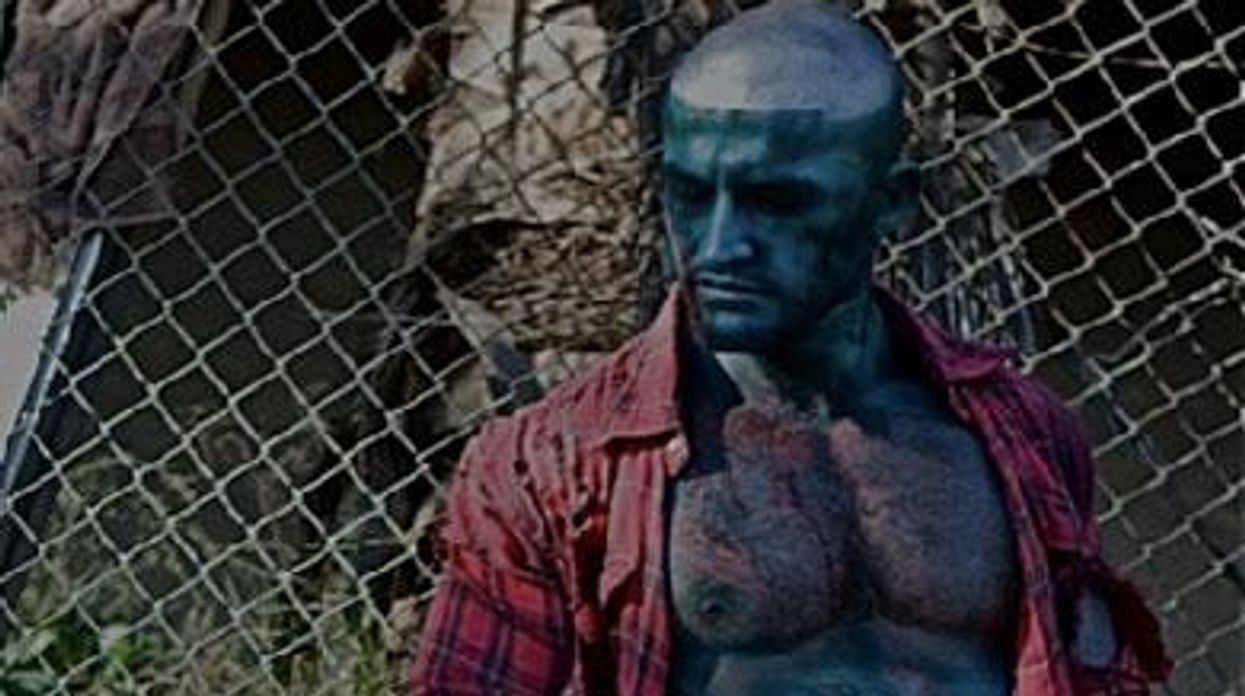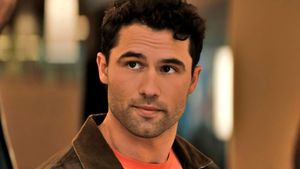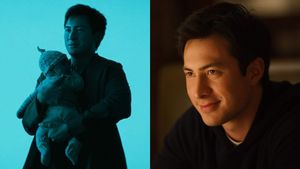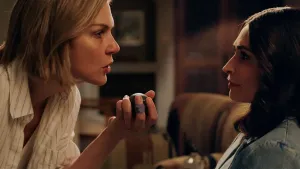CONTACTAbout UsCAREER OPPORTUNITIESADVERTISE WITH USPRIVACY POLICYPRIVACY PREFERENCESTERMS OF USELEGAL NOTICE
© 2025 Equal Entertainment LLC.
All Rights reserved
All Rights reserved
By continuing to use our site, you agree to our Privacy Policy and Terms of Use.
We need your help
Your support makes The Advocate's original LGBTQ+ reporting possible. Become a member today to help us continue this work.
Your support makes The Advocate's original LGBTQ+ reporting possible. Become a member today to help us continue this work.
When I first heard the news about the banning of my latest movie, L.A. Zombie, from the Melbourne International Film Festival -- via a Google alert directing me to an article in The Sydney Morning Herald -- I have to admit my first reaction was "Eureka!" As a director who has often made extremely low-budget films during his career (L.A. Zombie, for example, was shot in a week and cost less than $100,000), publicity is an essential part of the process. Censors don't seem to understand the idea that the more they try to suppress a film, the more attention is drawn to it and the more people want to see it. I was delighted to see that the news about the censorship had people talking about the movie on such unlikely mainstream websites as Reuters, Drudge Report, and the Huffington Post. You can't buy publicity like that.
I was, however, also extremely disappointed that my film would not be shown. I don't know any filmmaker who doesn't want his or her work to be seen as widely as possible, and it's always a thrill to have a modestly budgeted movie attract an international audience. My previous film, Otto; or, Up With Dead People, was voted the third most popular film at the 2008 Melbourne International Film Festival and it was quite widely distributed in Australia on DVD. I have received many emails from Australians expressing their disappointment that they will not be able to see the film and decrying their government for attempting to control what they can and cannot watch. Apparently, the censorship of L.A. Zombie has hit a nerve in Australia: In the current conservative political climate, not only are the government and Australian customs trying to monitor and control pornography entering the country on laptops and iPods, but they're also threatening to screen and filter out pornography on the Internet. This kind of state control is an infringement on civil liberties and freedom of expression and should not be tolerated.
L.A. Zombie is a difficult and provocative film. It's made in the tradition of avant-garde and surrealist film in a strongly pornographic style. I made the film as a purely visual and visceral piece with a sparse narrative and virtually no dialogue. This alone will make it unpalatable for many viewers who are not used to watching nonnarrative, experimental film. It's also a meditation on the homeless situation in L.A. engaging themes of necrophilia, sex magic, and ritual.
Of course, it will be offensive and distasteful to some people. But cinema, and particularly the horror genre, has been dealing with difficult and disturbing imagery since the 1920s. The theme of necrophilia can be traced back to the tradition of Romanticism rooted in the late 18th century. Edgar Allan Poe and Charles Baudelaire both dealt explicitly -- and romantically -- with the idea of the necrophile. The film may not be for everyone, but it should be up to those who wish to see it to make up their own minds about it without censorship. It's never a good idea for the state to make up the minds of its citizens for them. It can be a very slippery slope.
From our Sponsors
Most Popular
Bizarre Epstein files reference to Trump, Putin, and oral sex with ‘Bubba’ draws scrutiny in Congress
November 14 2025 4:08 PM
True
Jeffrey Epstein’s brother says the ‘Bubba’ mentioned in Trump oral sex email is not Bill Clinton
November 16 2025 9:15 AM
True
Watch Now: Pride Today
Latest Stories
Trump's FDA sends warning letters to companies selling chest binders
December 19 2025 2:31 PM
Bowen Yang to leave SNL after Ariana Grande and Cher episode
December 19 2025 2:10 PM
Notorious anti-LGBTQ+ New York Archbishop Dolan retires — here are his worst moments
December 19 2025 1:27 PM
Sarah McBride knew some Democrats would betray trans people, so she lobbied Republicans
December 19 2025 12:55 PM
Creating Change Returns to Washington D.C. for 38th Convening for LGBTQ Advocacy
December 19 2025 12:22 PM
House passes bill banning Medicaid from covering gender-affirming care for youth
December 19 2025 11:05 AM
Health policy expert to RFK Jr.: You can't ban trans youth care this way
December 18 2025 5:37 PM
12 lesbian thrillers and mysteries to binge & where to watch them
December 18 2025 4:36 PM
Netflix's 'Boots' season 2 plot revealed by producer amid cancelation
December 18 2025 4:33 PM
Charlie Kirk's accused killer, Tyler Robinson, on LGBTQ+ issues: It's complicated
December 18 2025 4:04 PM
Sacramento man still in coma six weeks after suspected anti-LGBTQ+ hate crime
December 18 2025 1:17 PM
RFK Jr. and Dr. Oz announce sweeping measures to ban gender-affirming care for trans youth
December 18 2025 12:19 PM
True
Texas city will remove rainbow crosswalks under orders from Trump administration
December 18 2025 11:07 AM
Six key takeaways from Trump's speech to the nation, including 'transgender for everybody'
December 17 2025 10:51 PM
Marjorie Taylor Greene’s bill criminalizing gender-affirming care for minors passes with Democrats’ support
December 17 2025 6:47 PM
True
I didn’t just run the world’s major marathons. I changed them
December 17 2025 4:31 PM
Pam Bondi wants FBI to offer bounties for ‘radical gender ideology’ groups, leaked memo shows
December 17 2025 3:17 PM




































































Charlie Kirk DID say stoning gay people was the 'perfect law' — and these other heinous quotes